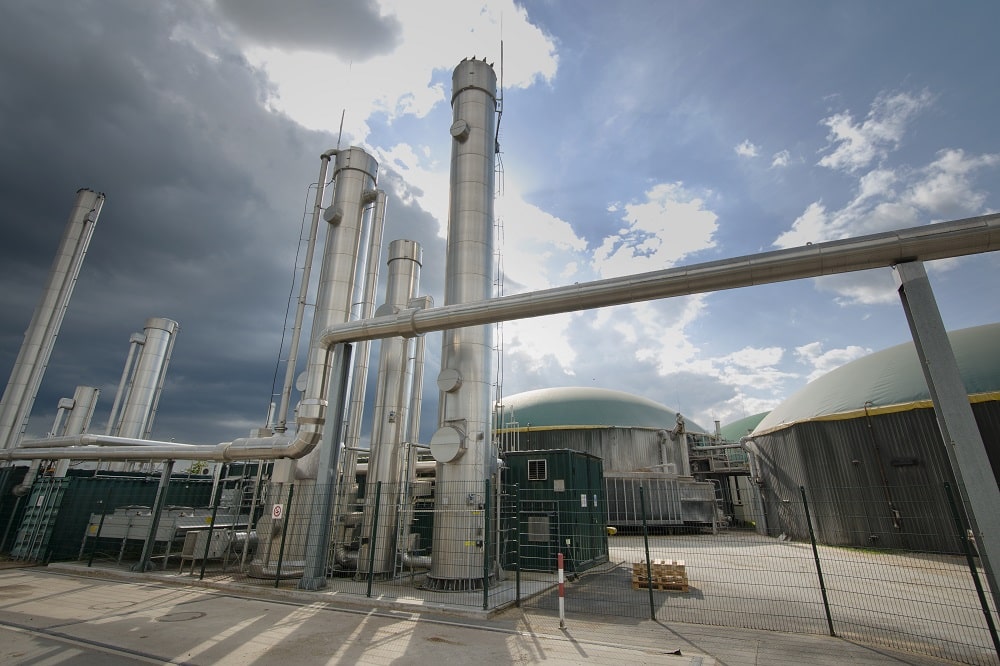The subject of the course is “Biogas, Biomethane and Grid Injection; Background, Overview and Opportunity.” It covers the technicalities, process and procedures for biomethane-to-grid projects as well as the benefits to be gained.
Purpose
The course will provide an understanding of opportunities and the means by which biogas manufactured from waste can be upgraded to make biomethane and to meet the various standards for entry into the existing gas supply network – this is to displace the equivalent quantity of fossil gas and hence support Net Zero initiatives. Also, the course will explain how the value of biomethane sold into the market (and support from the Green Gas Support Scheme) generates an income stream.
Agenda
1. The Basics (estimated 45 minutes)
a. Definitions and components; Biogas, Biomethane, the (UK) Gas Grid, by products
b. The existing Biomethane to grid industry
c. Purpose and benefits
d. Biogas upgrading technologies
e. Plant required including chemistry, hardware, connections, site characteristics and example layout
f. Supply chain
2. Grid Entry – the Grid Companies (20 mins)
a. Safety Case and HSE compliances
b. their role in projects
c. their obligations and requirements
d. Local Operating Procedures
3. Grid entry – the Rules (45 mins)
a. Legal requirements and statutory obligations
b. Regulations
i. Gas (Calculation of Thermal Energy) Regulations
ii. Gas Safety (Management) Regulations
iii. DSEAR
iv. PSSR
v. Hazardous Zoning
4. Grid Entry– The Engineering (60 mins)
a. Standards
b. Physical grid connection and pipelines
i. Materials
ii. Compression into high pressure tiers
c. Flow constraints
d. Ownerships and obligations
e. Calorific value and Propane injection plant
i. Propane storage
ii. Liquid vs vapour phase injection
5. The Grid Entry Unit (15 mins)
a. Purpose and functions
b. Example designs
c. Supply chains
6. Grid Entry – Operations (15 mins)
a. Monitoring and controls
b. Maintenance
c. Flow control and automation
d. Routine works
7. Revenues and Ofgem (30 mins)
a. Financials and commercials
b. Site audits
8. Grid Entry – The Future (30 mins)
a. CO2 Capture, what it is and what’s involved
b. Standardisation and impact on future costs
c. Plant ownership and access
d. Reverse Compression – how to avoid capacity constraints
e. Network connections – by whom etc
9. Feedback and Success Criteria (30 mins or as needed)
a. Q&A session at intervals within and after each session
b. Feedback questionnaire after each session and at conclusion
Why attend?
- New staff get an ideal introduction and experienced staff get an excellent refresher
- Understand how to meet technical standards whilst generating income
- Access to course PowerPoint presentation
- Earn a certificate upon completing the course
Ticket Prices*
£195 + VAT each for ADBA members
£295 + VAT each for non-members
*Training events are non-refundable
Who is it for?
This is intended to be of interest to the anaerobic digestion industry. It also appeals to anyone wanting to improve environmental performance and commercial yield, who is currently, or proposing to finance, operate or develop a new or existing biogas production site, biogas-fuelled CHP site, waste processing and biogas production facility, or with a process that generates significant bio-degradable waste.
About the course leader
Iain Ward is a Chartered Engineer and has worked in the UK and overseas gas industries for more than 40 years in various technical, regulatory and safety roles. He was project manager on the first UK Biomethane to Grid project and has been closely involved in the initial and subsequent development of plant, equipment and operations of gas to grid plant. In conjunction with CNG Services he has been responsible for, or closely involved in, about 40 BtG projects to date and various feasibility and Hazop studies, including high pressure and virtual pipeline outlets, across all the UK gas networks.
The Anaerobic Digestion and Bioresources Association (ADBA) was established in 2009 to represent the UK anaerobic digestion (AD) and bioresources industry and to support the development of a safe, high-performing industry. www.adbioresources.org

For more information about the course content, contact Charlotte Marcel, Technology Strategy Lead at ADBA, at charlotte.marcel@adbioresources.org and +44 (0) 203 960 0772



